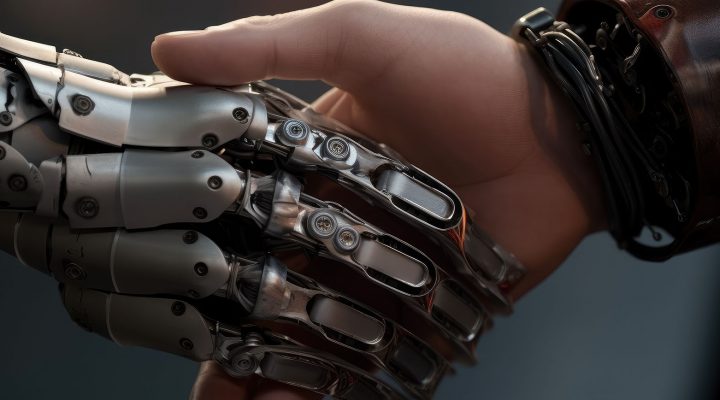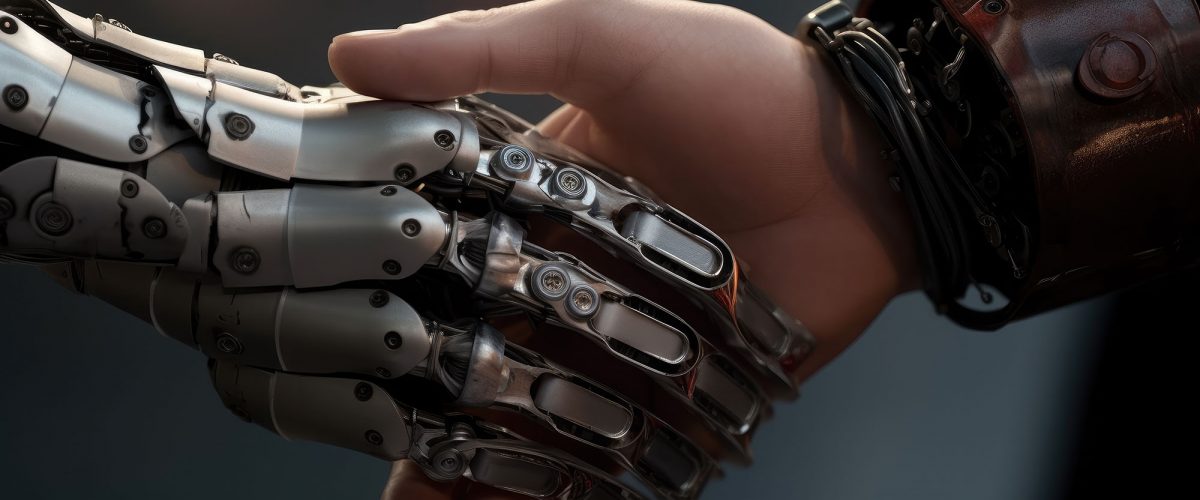When I was a boy growing up in the heartland of America, I learned two invaluable truths from my beloved father. First, I shouldn’t fear the “reaper,” because death will come to each of us (Hebrews 9:27). And second, I shouldn’t fear new technology, because it often lightens our workload and makes life more manageable.
My father was an expert sailor who sailed the Great Lakes with the Merchant Marines and often used newly developed tools and other technological developments to clean unwanted barnacles and algae off the bottom of his boats. My dad would often enlist my brother and me to help him with this arduous task.

Lee Enochs
To my shame and constant chagrin, I must confess, I often put up a fight and didn’t want to use his new sandblasters, not because I opposed this sort of tool and technology, but simply because at the tender age of 10, I would have rather done something else like use my bike to jump off makeshift ramps like my childhood hero Evel Knievel.
In recent months, new technological developments have been all the rage and the subject of artificial intelligence or “AI” has received a lot of publicity — with proponents of the technology singing its praises and proclaiming its revolutionary benefits for human civilization and detractors warning of its alleged malfeasance and the potential impending apocalyptic hazards for humanity as we know it.
So important is the potentiality of AI that Elon Musk, billionaire owner of X (formerly known as Twitter) and Tesla, has founded two business ventures related to AI: Neualink, which is in the process of developing neural interface technology to connect the human brain and AI, and OPENAI, a nonprofit research company predicated upon assisting humanity with digital intelligence.
Additionally, Musk has raised the possibility of developing “Tesla Bot,” a humanoid robot that can perform tasks like going to the store.
Advocates of artificial intelligence cite the potential of eliminating human error and risk in professional and scientific tasks, its 24/7 availability, unbiased decision making, the elimination of repetitious jobs done by human beings and cost reduction in business ventures.
However, detractors cite the potential of human job loss due to technological automation, potential privacy violations and security risks, possible lack of transparency and accountability, algorithmic bias and discrimination, and socioeconomic inequality and potential market volatility brought on by factors pertaining to AI technology.
Some critics of artificial intelligence even cite cultural references such as the Matrix movies and “Skynet,” the fictitious and weaponized AI group mind that seeks to eviscerate humanity.
“Like any tool created by human beings, AI ultimately is neutral and can be used for good or bad depending on the intents and purposes of its human creators.”
However, despite the dire prognostications of its detractors, artificial intelligence technology appears to be here to stay. And in reality, like any tool created by human beings, AI ultimately is neutral and can be used for good or bad depending on the intents and purposes of its human creators.
When considering the potential benefits and limitations of AI, it is of paramount importance that followers of Jesus Christ separate fact from fiction and not be swayed by bizarre conspiracy theories — such as comparing AI to receiving the “Mark of the Beast” mentioned in apocalyptic literature (Revelation 13).
In opposing and resisting the use of new technologies, Christians must be careful not to give credence to idle speculation and bizarre conspiracy theories and not to fall into the trap of the aberrant 19th century British sect known as the Luddites, who opposed new technology and destroyed innovative machinery they believed was threatening their jobs and way of life.
I am afraid many Christians today, in their fear of the unknown regarding artificial intelligence, are acting like the Luddites and are opposing this new technology without tangible evidence that it has or will have malevolent effects on society.
In the same way my beloved father and the spectacularly gifted 1970s rock band the Blue Oyster Cult, told us not to “fear the reaper,” we shouldn’t fear new technologies like artificial intelligence simply because they are new or because some people believe, often erroneously, that new technologies are always bad for society.
Lee Enochs is a graduate student and is on staff at the Mayborn School of Journalism at the University of North Texas, where he also hosts a podcast for KNTU (88.1 FM). He is a graduate of Southwestern Baptist Theological Seminary, Princeton Theological Seminary and Gateway Seminary.
Related articles:
This article was written using Chat GPT AI | Opinion by Mallory Challis
When artificial intelligence finds its way into the church | Opinion by Rosaly Guzman
Reverend Roboto: Artificial intelligence and pastoral care | Analysis by Kristen Thomason


